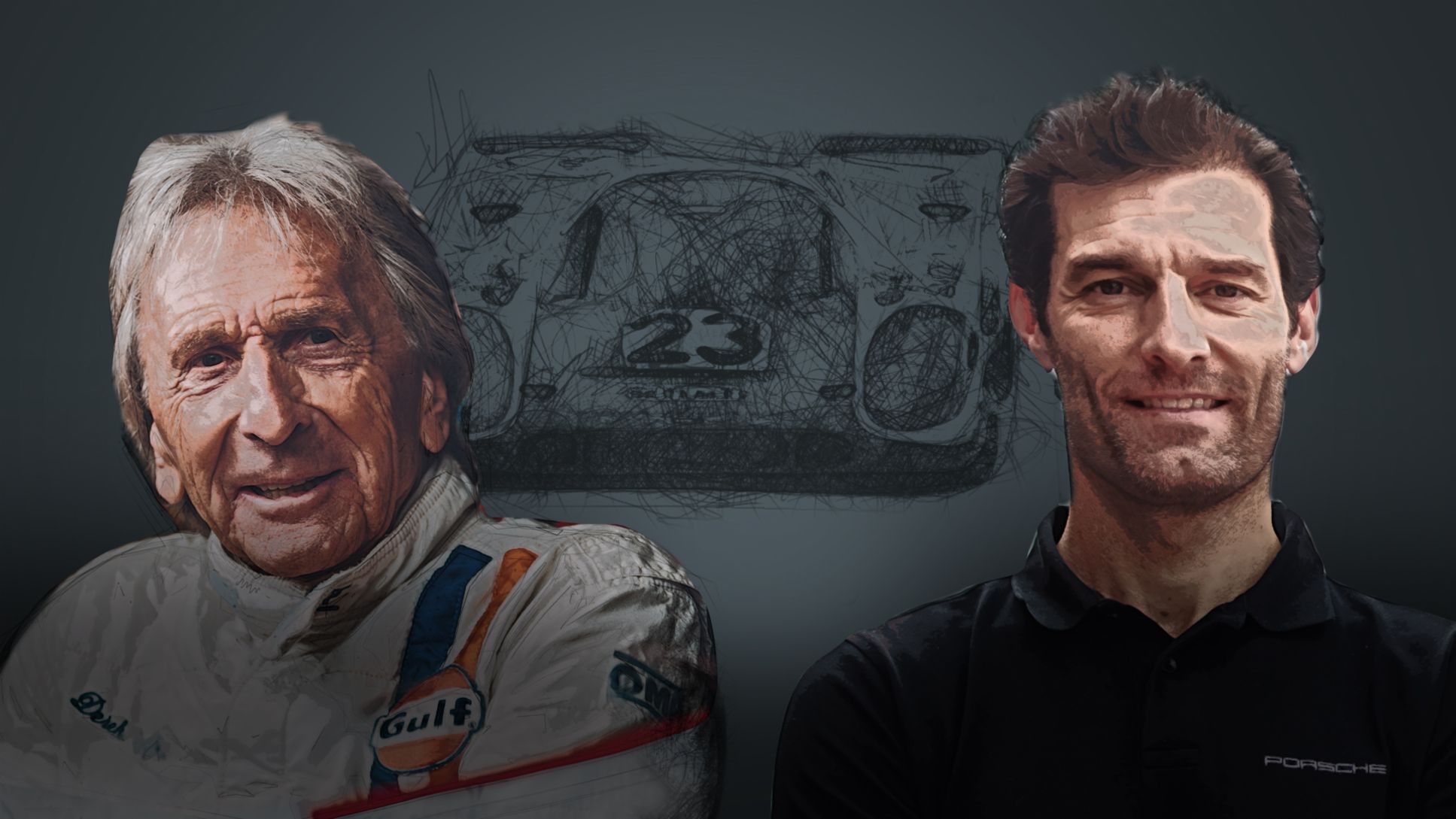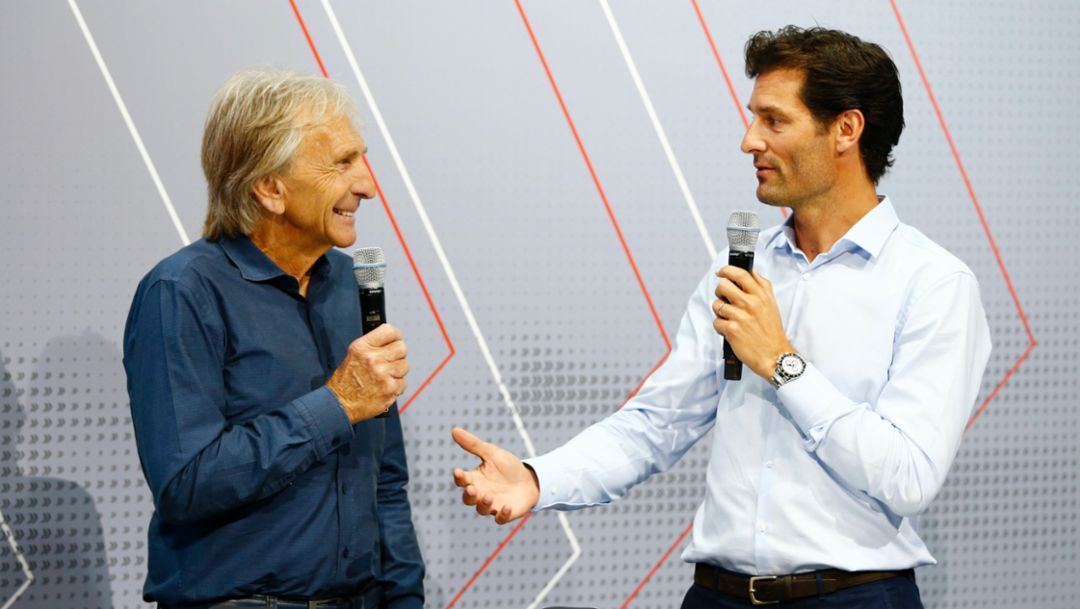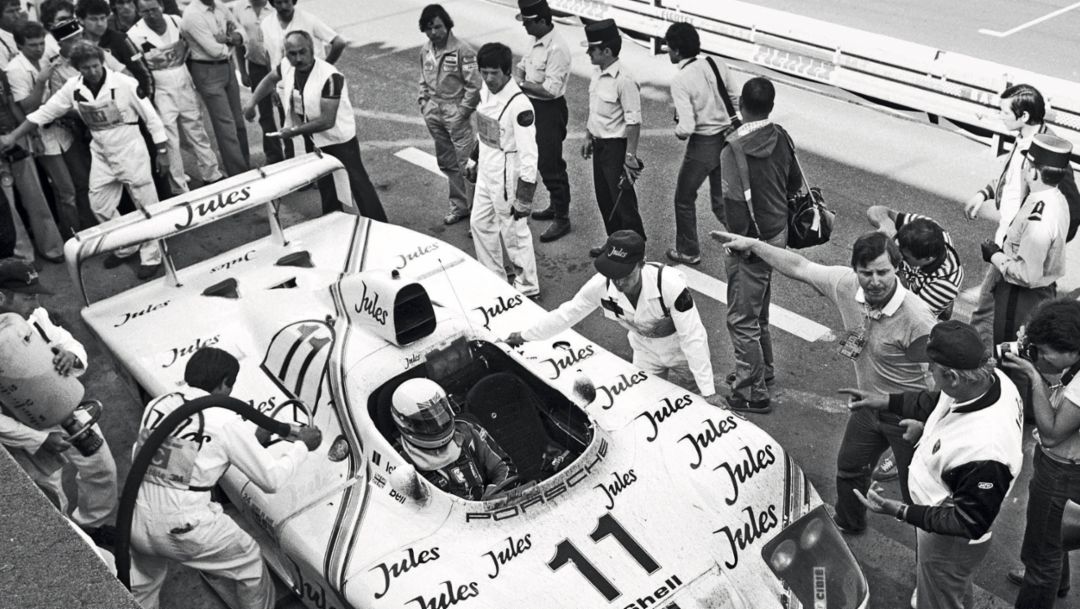Derek Bell has won Le Mans a remarkable five times, four of those at the wheel of a Porsche. This year the 78 year-old Briton would have been starting the race as Grand Marshall, but instead finds himself at home in Florida, itching to return to his old hunting grounds.
Brand ambassador and LMP1 ace Mark Webber was a pivotal figure in the 919 Hybrid programme that culminated in three back-to-back victories for Porsche at Le Mans. After a successful career in Formula One, Webber brought an exceptional breadth of experience and commitment to Porsche’s fledgling prototype campaign, narrowly missing out on overall victory at Le Mans on two occasions.
Here, the two friends reminisce about the most challenging sportscar race on the international calendar, reflecting on both the pronounced differences and striking similarities in racing for Porsche in their respective eras.
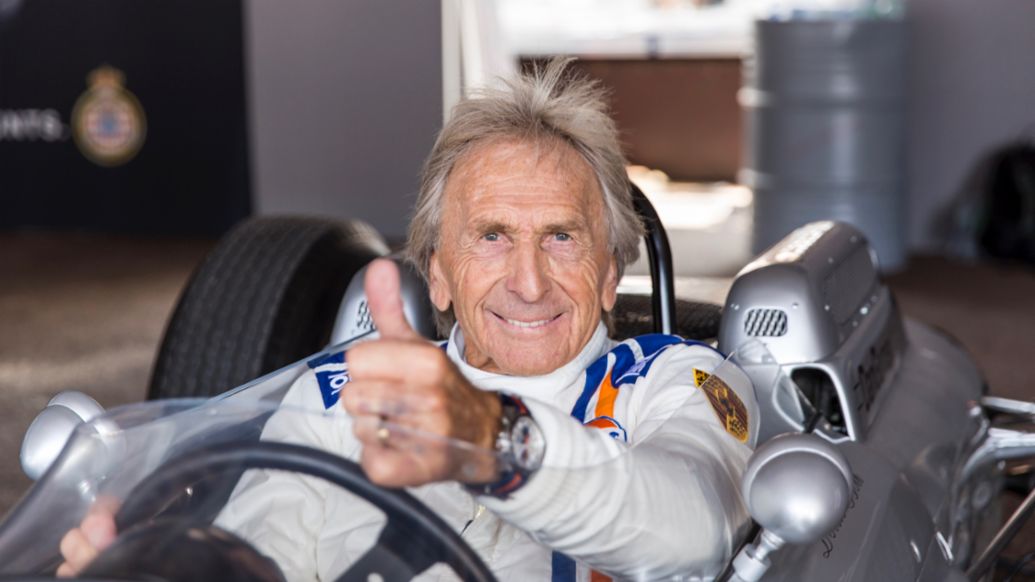
Derek Bell: “I first went to Le Mans with Porsche in 1971. When we were testing over the weekend, they calculated that I was doing 396km/h down Mulsanne. I knew we were going quickly, but not that quickly, because I’d only ever felt that before on take-off at Heathrow. So that was my welcome to Porsche at Le Mans!”
Mark Webber: “The history of the brand is so prominent when you race there. Having Dr. Wolfgang Porsche in the garage was massive for me. Remembering the journey he’d been on and how much racing meant to the brand. Le Mans was always the Holy Grail and to have the opportunity to drive for Porsche there, with their tremendous record – you feel part of something. It’s funny though: Le Mans is actually the worst race Porsche could enter in terms of how they think, because stuff happens over 24 hours and they don’t like stuff happening. They just want the job done. But because they’re so organised and meticulous with their preparation on the cars, they still back themselves.”
Bell: “Which they’re right to do. I drove on and off for Porsche for 35 years and in all that time I think I had one thing break. It was a suspension part that failed at Spa and caused me to crash. This was six weeks before Le Mans and I had no idea what had happened. I had a terrible time emotionally, never having crashed before. I was 45 years-old by this point and wondering if I was over the hill. When we got to Le Mans over a month later, Norbert Singer told me they’d discovered it was this little suspension component. If only I’d known for all that time.”
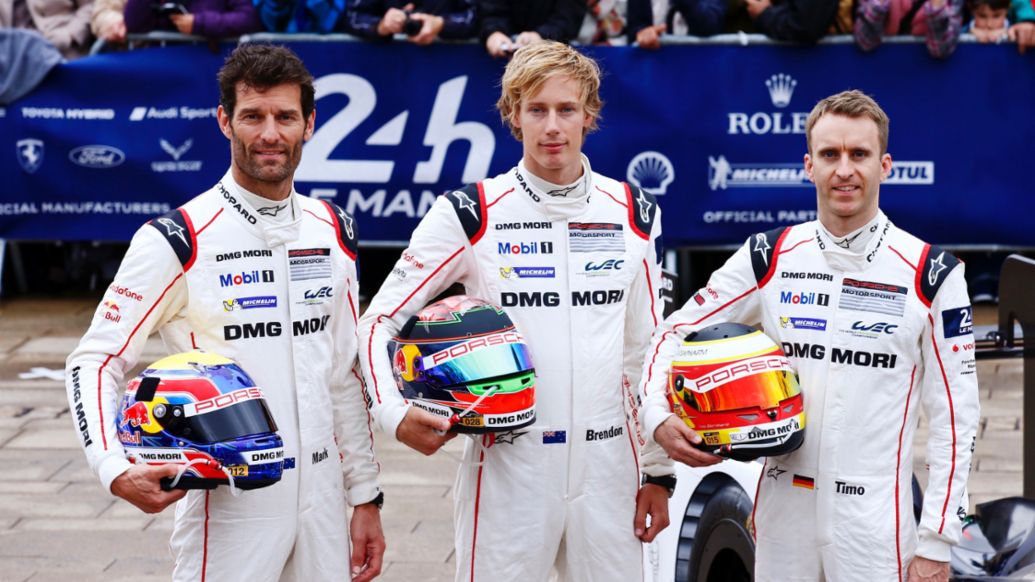
Webber: “Porsche takes great pride in reliability and driver safety. As a driver you want confidence in the machinery, to know you’re working with the best materials. I had that in F1 of course, so moving to Porsche was a blessing.”
Bell: “Yes, you never heard Porsche say: “Oh no, that’s too expensive.” They were always looking to the future. At Ferrari, the mechanics cried if you won and cried if you lost. With Porsche, if you won, they grunted and if you didn’t win they grunted and went back to the drawing board. It was all about making sure the car worked and was safe. That was their job.”
Webber: “I remember in 2016 we had a big lead – 60 seconds or so – and Timo Bernhard woke me up to tell me the water pump had gone. That car was so, so good and our team boss Andreas Seidl’s face was ashen. They’d never seen it fail once in all the thousands of kilometres of testing they’d done. So you do get those tough moments at Le Mans, and you do get emotional seeing what the mechanics and other drivers are going through.”
Bell: “It was similar for Jacky (Ickx) and me. There were only two of us driving the cars in those days and generally speaking we’d do 12 hours each, sometimes four hours at a time at night. I got out of the car one year when we’d won and literally just collapsed. The last words I heard were “This man needs help!” as I passed out.”
Webber: “You must have been incredibly strong to hang on to those cars for so long. You had no power assistance on steering or brakes. And the belts and seating position were pretty average. You had a lot of compromises to deal with.”
Bell: “Well you’ve driven the 917 now too, so you know. It was so light that you could drive it for days without getting worn out. All you had to contend with was understeer and oversteer. Whereas later on with the 956 we had incredible downforce at play. You guys never seemed as knackered when you got out. Maybe it is things like power steering – I never raced with that – but you are all much fitter.”
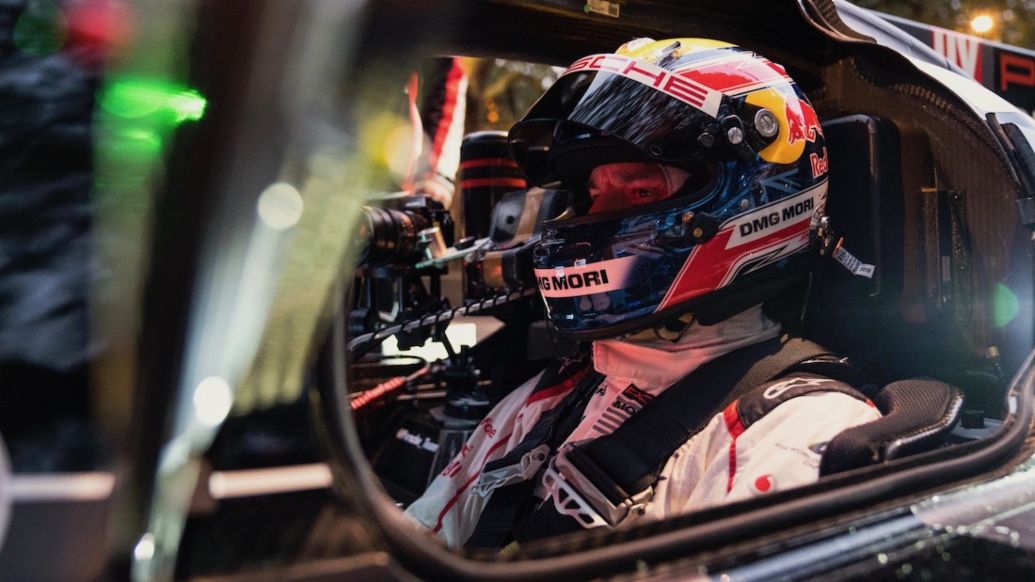
Webber: “We were pretty fresh, you’re right. Mentally tired maybe. I just struggled with how tight the 919 was as I’m quite tall and my left leg used to go to sleep because I was braking with my right foot too. But it was an astonishing car. I have so many good memories from that time.”
Bell: “Absolutely. I think my fondest memory of Le Mans was winning in the 936 in 1981. The new CEO Peter Schutz wanted Porsche back on top at Le Mans but they didn’t have a car. The story goes that the engine developed for Indy Car was just lying around so they put it in the 936, which was four years-old by then. I didn’t even sit in that car until we went out for first practice, but we got pole position, led every lap and won the race. That for me was the most memorable because it was a comeback of sorts and I’m so grateful to Porsche for giving me that opportunity.”
Webber: “The one that comes to mind most often for me is strange because I wasn’t actually racing. It was 2017 and I was Grand Marshall and the car that won was driven by Timo, Brendon Hartley and Earl Bamber, who’d just replaced me. My old seat was still in that car! They came from nowhere to win that race and it was my job to hand them the trophy. But it wasn’t a difficult moment for me. Those were the best hugs I’ve ever had. I get goose bumps even now. They were my mates and they wanted me to stay on the podium like a fourth driver. That was definitely my Le Mans highlight. Our bond was extraordinary.”
